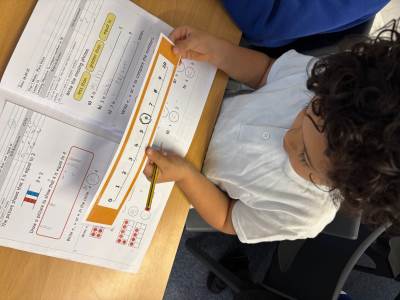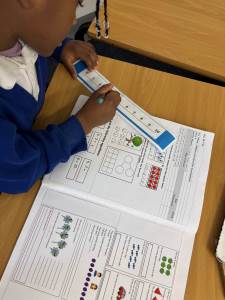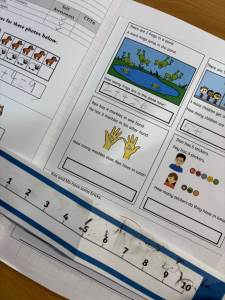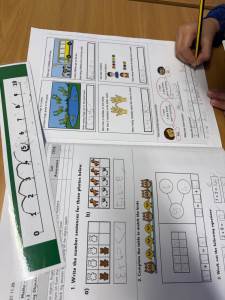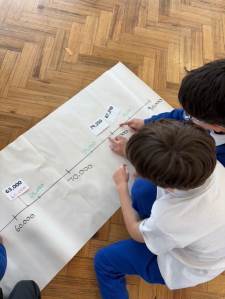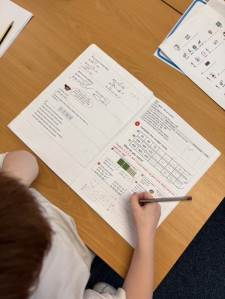Maths
Maths
Intent
At Bevington Primary School, mathematics is recognised as a key pillar of a well-rounded education. We aim to ensure that every pupil develops a secure and lasting understanding of mathematical concepts, enabling them to reason, solve problems, and confidently approach challenges.
The mathematics curriculum draws from the National Curriculum and the EYFS Framework and is carefully designed to help pupils build and connect:
- Declarative knowledge – knowing mathematical facts and concepts
- Procedural knowledge – knowing how to carry out mathematical methods
- Conditional knowledge – knowing when and why to apply different strategies
We aim to develop fluent and confident mathematicians who can articulate their thinking, explore patterns and relationships, and apply their learning in a variety of contexts. Every child, including those with additional needs, is supported to achieve high standards and enjoy success in mathematics.
Implementation
At Bevington, we follow the White Rose Maths scheme from Reception to Year 6. This provides a coherent, carefully sequenced pathway through the mathematics curriculum, ensuring a consistent approach across the school. Small steps and regular revisiting allow pupils to deepen understanding and embed knowledge in long-term memory.
Teaching is structured around three core principles:
- Conceptual Understanding
Pupils learn through the consistent use of concrete, pictorial and abstract representations. Teachers select resources and representations that expose the structure of the maths being taught, enabling children to grasp underlying concepts and see how different pieces of knowledge connect. - Language and Communication
Mathematical vocabulary is explicitly taught and modelled. Pupils are encouraged to use full sentences to describe their thinking, justify their reasoning and explain their methods. Talk for learning is a central feature of every lesson, supporting cognitive development and mathematical confidence. - Fluency and Mathematical Thinking
Alongside fluency in number facts and efficient procedures, we nurture children’s ability to think mathematically. Pupils are taught to notice patterns, generalise, and make decisions about which strategies are most effective, supported by regular, varied practice.
To support long-term retention and revisit key concepts, we run Maths Meetings from Year 1 to Year 6. These short, focused sessions take place several times per week and provide structured opportunities to review core knowledge, strengthen fluency, and reinforce previously taught content in a low-stakes setting.
Teachers plan for conceptual variation and ensure pupils see a range of examples, so they understand how to perform procedures and when and why to apply them. Over time, concrete materials are reduced, and pupils develop increasing independence and abstraction in their thinking.
Home Learning in mathematics is set weekly for all year groups. Each task is carefully designed to reinforce and extend classroom learning, allowing pupils to practise core skills and consolidate their understanding. These tasks reflect the structure and content of current units and are used as an additional opportunity to monitor progress and identify gaps in knowledge.
Impact
Pupils at Bevington leave Year 6 as fluent, confident, and independent mathematicians. They understand key mathematical concepts, can reason logically, and can tackle unfamiliar problems with resilience and flexibility. Our pupils are well-prepared for the next phase of their education and equipped with skills that will support them far beyond the classroom.
We measure the impact of our curriculum through:
- Daily formative assessment and teacher questioning
- Regular end-of-unit assessments using White Rose and NFER materials
- Pupil conferencing and book looks
- High-quality and accurate completion of home learning
- Outcomes in statutory assessments at EYFS, KS1, Year 4 (MTC), and KS2
Pupils at Bevington know that getting stuck is part of the learning process. They show perseverance, take pride in mathematical thinking, and see themselves as capable, inquisitive learners. Our approach ensures they leave us with the knowledge, habits, and confidence to use mathematics meaningfully in their lives.





